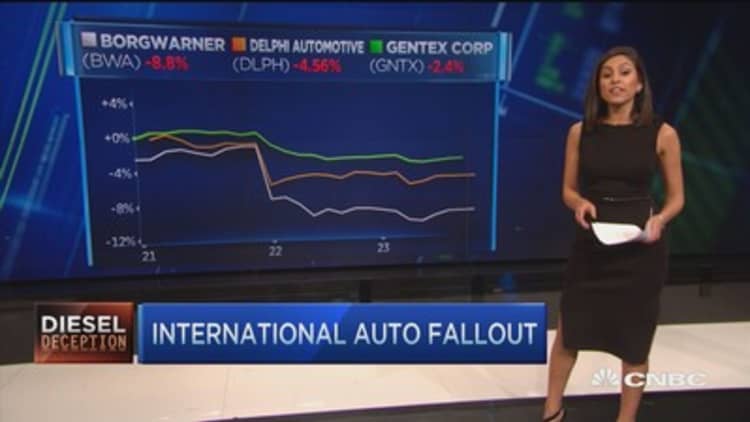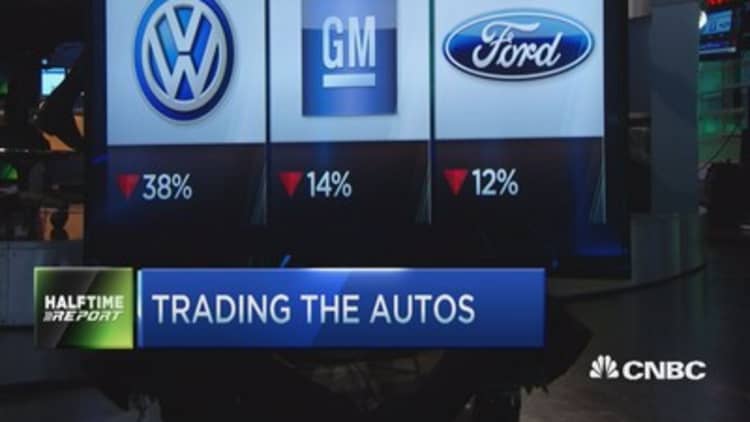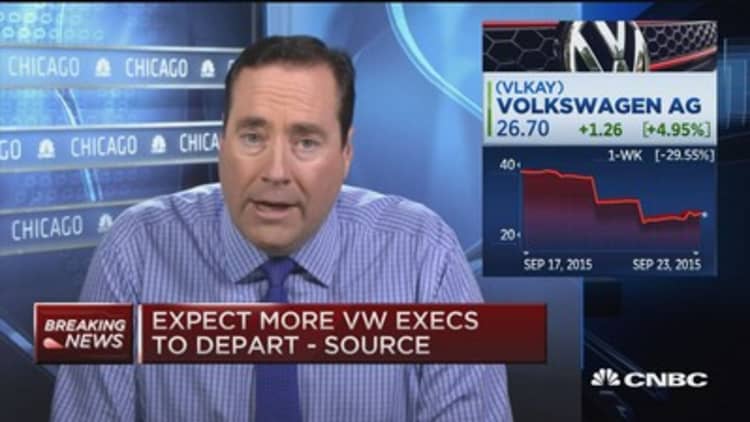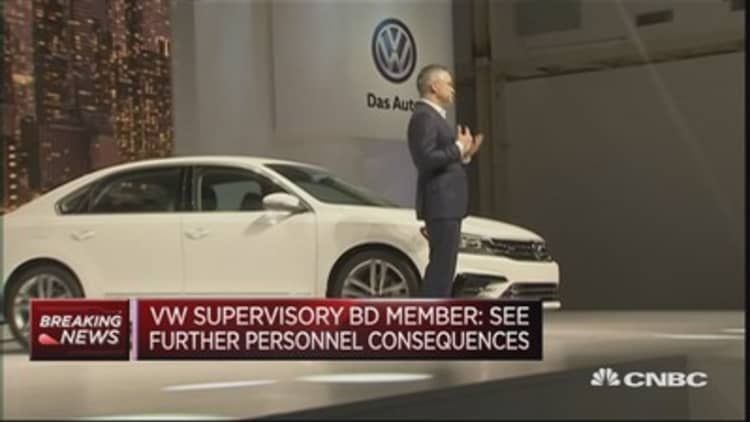



The decimation of share prices across the autos industry this week highlights growing concerns that Volkswagen's problem could quickly turn into one for the entire carmaking industry.
The U.S. Environmental Protection Agency has accused Volkswagen of installing a device in its diesel vehicles to run maximum anti-pollution controls only when emissions tests were taking place. VW has admitted the mistake and apologised, with its U.S. boss, Michael Horn, saying the company had "totally screwed up."
No other car manufacturers have officially been accused of this kind of behavior. However, the light shone on what Volkswagen was trying to sell as emission-reducing cars, which were in fact pumping more nitrogen dioxide (NOx) into the air than thought, could be uncomfortable for others.
The scandal should be "a massive wake up call to governments and regulators around the world," Friends of the Earth air pollution campaigner Jenny Bates told CNBC.
"More than fifty thousand people die early every year in the UK due to our illegally filthy air. Vehicle pollution is the main problem, with diesel vehicles the biggest culprit. Tough pollution standards are crucial for cleaning up our sub-standard air quality – which is why an urgent investigation is needed to ensure that the motor industry is complying with EU regulations."
Even given the drastic share price falls, investors are likely to stay away from the automobile sector for a while as they wonder which company will be next. Analysts have been producing gloomy forecasts for both Volkswagen and the sector as a result, with one typical example from Societe Generale, which downgraded the sector from Overweight to Neutral, deeming it "dead money".
On Thursday Nordea Asset Management announced that its fund managers were banned from buying VW's stocks and bonds, saying that "the scandal is unacceptable from an investment point of view."
Yet the fallout could be even worse than feared, if it emerges that the problem of promoting cars as more environmentally friendly than they are goes beyond Volkswagen.
This kind of industry-wide problem is sometimes called a "tobacco moment" after the cigarette industry's early denials of the links between smoking and lung cancer, which eventually proved futile.
What is nitrogen dioxide?
This gas can cause significant problems with the respiratory system, and even contribute to premature death. There are also signs that, despite air quality standards, its concentration in urban areas in Europe in particular is on the rise, as Europe has focused on reducing greenhouse gas emissions rather than NOx emissions, as this recent article in Nature outlines.
In October last year, a study by the International Council on Clean Transportation identified a "wide discrepancy" between NOx emissions from new diesel passenger cars in official certification, and their actual NOx emissions in real-world situations.
Could this be a Europe-only story?
Jeff Thurk, assistant professor of economics at the University of Notre Dame, argued in an email to CNBC that the scandal is due "largely to stark differences between car emission standards in the U.S. and Europe. Where U.S. regulators are concerned with limiting acid from nitrogen oxide (NOx) emissions, European regulators are concerned with limiting greenhouse emissions (e.g., CO2)."
The difference in European policy produced what Thirk called, in a study published in August with Eugenio J. Miravete and Maria J. Moral, "important distortion effects in the European automobile market" and "a powerful tool to protect the domestic European auto makers". He estimates that the level of protection given to European produced cars was the equivalent of close to a 20 percent import tariff when the actual import duty amounted only to 10.3 percent.
European policymakers may themselves find they have questions to answer as the fallout from the story unfolds.
- By CNBC's Catherine Boyle




